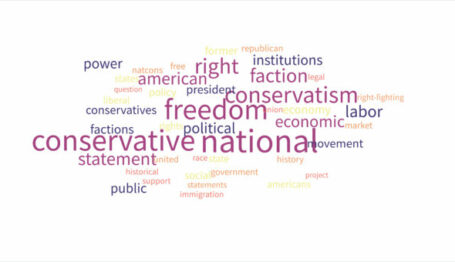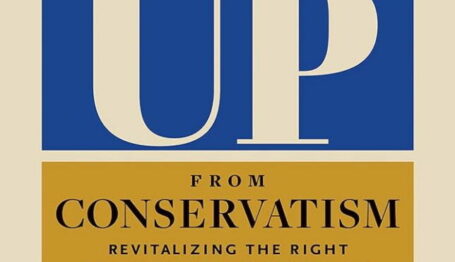Special Report
The Great Reset and Its Critics: The Great Reset
 Later in 2020, Schwab and French economist Thierry Malleret published COVID-19: The Great Reset¬, a book-length examination of the changes in society the authors presumed were likely to happen and perhaps desirable as a result of the pandemic. Credit: Thierry Malleret. License: https://bit.ly/3Qu0qgM.
Later in 2020, Schwab and French economist Thierry Malleret published COVID-19: The Great Reset¬, a book-length examination of the changes in society the authors presumed were likely to happen and perhaps desirable as a result of the pandemic. Credit: Thierry Malleret. License: https://bit.ly/3Qu0qgM.

The Great Reset and Its Critics (full series)
The Technocrats | The Great Reset
The Great Narrative | The Critics | Conclusion
COVID-19: The Great Reset: A Litany of Bad Predictions
In July 2020, Klaus Schwab and Thierry Malleret published COVID-19: The Great Reset, which the authors wrote would “help understand what’s coming in a multitude of domains.” But at a little more than two years removed from the book’s publication, much has not proceeded as Schwab and Malleret expected. This has important implications for the state and “stakeholder”— left-wing interest group and left-wing NGO-industrial complex—directed future they seek.
At least in the United States, their expectations for employment and inflation were completely wrong. They argue that (from their vantage point in July 2020) the unemployment situation was “bound to deteriorate further” because a “sustainable economic recovery” would not start until a COVID-19 vaccination was developed. In fact, the combination of the end of the initial, harshest lockdowns and government assistance meant that the economy had already begun to rebound at the time of publication. Both unemployment and broader dis-employment (the “U-6” measure) had peaked during the maximum extent of lockdown in April 2020 and were trending rapidly downward (from an historically astronomical level) in July 2020. The economic recovery in the U.S. began rapidly after the end of the lockdowns, with the formal recessionary period (defined as the beginning of contraction to the beginning of recovery) lasting only two months.
Schwab and Malleret were also wrong about the other side of the Phillips Curve: inflation, which has been high and persistent in both the United States and Europe since 2021. They wrote, “At this juncture, it is hard to imagine how inflation could pick up anytime soon.” But it did, and with increased inflation will come increased interest rates and government debt-servicing costs. A situation of near-zero inflation and near-zero aggregate growth over a long period as has occurred in Japan, which Schwab and Malleret suggest is a “salutary lesson that there is hope in the face of economic hardship,” is not currently in the cards for America and Europe.
As for public health and the spread of the virus, Schwab and Malleret in large part blame failures in global governance. But global governance is not a thing that meaningfully exists. The multilateral institutions, like the World Health Organization that the authors claim to be a global governance body, are more meaningfully sites of great-power rivalry. The potential consequences of WHO Director-General Tedros Adhanom Ghebreyesus having been backed for his post by the People’s Republic of China, site of the first outbreaks of COVID-19, go unremarked. Schwab and Malleret predict rising tensions between the United States and Communist China, but the implications of that rivalry for their desired “global governance” appear to evade them.
Schwab and Malleret praise the effects of the “environmental reset” that lockdowns placed on the general population. Schwab, for one, has sought for decades to supplant shareholder primacy with corporate social policy modeled on environmental and social governance (ESG). Naturally, he predicts COVID-19 will lead ESG into ascendancy.
Not all the “environmental reset” predictions have come true. Andrew Cuomo, hounded from the governor’s office in New York for allegedly sexually harassing 11 women, would not today find himself considered an example of “enlightened leadership,” as Schwab and Malleret did given his commitments to an environmentalist rebuilding from the pandemic crisis. Air travel has recovered (airport security passenger throughput totals are nearly back to pre-pandemic levels) and the lockdowns revealed that many digital substitutes for in-person experiences are woefully insufficient, “virtual learning” for K–12 students being the most obvious.
Schwab and Malleret praise the possibility of digital contract tracing to control viral outbreaks, but across the Western world such schemes largely failed due to public resistance and indifferent non-adoption. Technocrats have largely blamed this outcome on concerns over data security, but the cause was likely more visceral. Free people resisted giving out tracking information on their movements to Big Tech and Big Government that might be used to confine them. Even Schwab and Malleret acknowledge the “risk of dystopia” such tracking creates.
That free peoples might consider that risk unacceptable, even in the face of disease and death, appears to evade them. Likewise do the implications of a mental health crisis caused in part by lockdowns, or the just fury of those who lost “great markers of time”—weddings, funerals, even day-to-day interactions—to unreasonably extended confinement.
The resilience of the “old normal” against the new is perhaps best illustrated by one bad guess the authors made. In 2020, car-rental giant Hertz declared bankruptcy. Schwab and Malleret called this “the last straw” for a firm reliant on air travelers. But in October 2021, Hertz emerged from restructuring having cleared billions in debt, sold off used vehicles amid high used-car prices, and profited from a post-pandemic return to travel. The “last straw” looked more like a classical business cycle, if on an accelerated timeframe.
In the next installment, in The Great Narrative update their leftist technocratic vision of the future.



